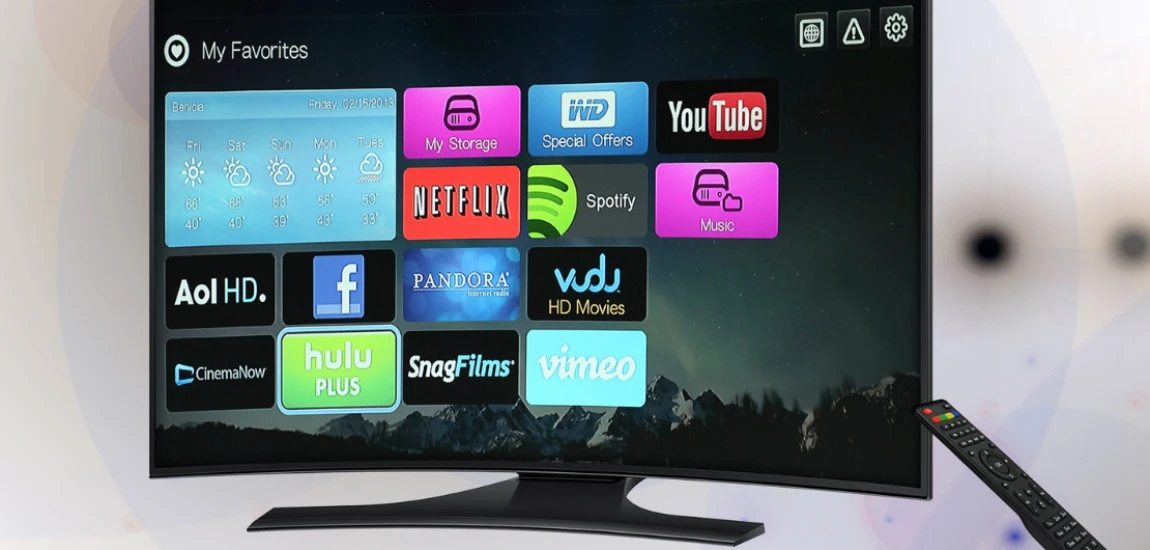Why Mini-Series Are Outshining Traditional TV Shows

Over the last decade, television has undergone a seismic shift. While traditional TV shows once dominated with their sprawling seasons and long-running arcs, the rise of the mini-series (or limited series) has changed the game. Audiences who once committed to ten seasons of a drama like Grey’s Anatomy or The Walking Dead now flock to six-episode masterpieces such as Chernobyl, The Queen’s Gambit, or Mare of Easttown. This shift isn’t just about shorter runtimes—it’s about how stories are told, produced, and consumed in today’s streaming-first era.
Streaming platforms like Netflix, Max, Apple TV+, and Hulu have leaned heavily into mini-series, seeing them as a sweet spot between cinematic spectacle and binge-worthy television. They attract top-tier directors and A-list stars who might avoid traditional long-term commitments but are drawn to the prestige and creative freedom of a shorter format. At the same time, audiences—who are juggling busier lifestyles and endless entertainment choices—find limited series to be a perfect balance of depth and efficiency.
This blog explores why mini-series are outshining traditional TV shows, analyzing their advantages in storytelling, budgets, performances, audience engagement, and cultural impact. Whether you’re a TV enthusiast or a casual viewer, understanding this shift will help you see why the future of television may be shorter—but also sharper.
Tighter Storytelling: Quality Over Quantity

Focused Narrative Arcs
One of the biggest strengths of mini-series is their ability to tell a focused story without filler. Traditional TV shows often run 20+ episodes a season, forcing writers to stretch material, add subplots, or stall character development to meet episode quotas. By contrast, mini-series are designed to be concise—every scene and line of dialogue matters.
Avoiding “Show Fatigue”
How many times have viewers abandoned a long-running show halfway through because it dragged on? Mini-series eliminate this problem by offering satisfying, self-contained stories that don’t overstay their welcome.
Examples of Success
Take Chernobyl (HBO), which compressed years of history into five gripping episodes, or The Queen’s Gambit (Netflix), which turned a niche subject like chess into global phenomenon in just seven. Both are examples of how brevity breeds intensity in storytelling.
Bigger Budgets, Shorter Commitments

Cinematic Production Values
Mini-series often receive film-like budgets because studios don’t have to stretch resources across dozens of episodes. This results in better sets, costumes, special effects, and cinematography.
Luring Top Talent
Because mini-series don’t require years of filming, A-list actors and directors are more willing to sign on. Stars like Kate Winslet (Mare of Easttown), Benedict Cumberbatch (Patrick Melrose), and Ewan McGregor (Fargo) have embraced the format for its prestige and limited time commitment.
The “Event” Feel
With high production quality and limited episodes, mini-series often feel like a special event, drawing in audiences who treat them more like must-watch films than background TV.
Streaming Platforms and Binge Culture

Perfect Fit for Binge-Watching
Mini-series align perfectly with binge culture, where audiences prefer to consume stories in one or two sittings. Their shorter length makes them digestible while still feeling substantial.
Netflix, Hulu, and Apple TV+ Investments
Streaming platforms are pouring resources into mini-series because they know audiences want high-quality, finite stories. For instance, Netflix’s When They See Us and Apple TV+’s Defending Jacob both became critical darlings and cultural touchpoints.
The Competitive Advantage
Mini-series help streaming platforms differentiate themselves in a crowded market. By offering prestige limited series, they attract subscribers looking for something beyond traditional TV formulas.
Prestige and Awards Recognition

Awards Magnet
Mini-series frequently dominate award shows like the Emmys and Golden Globes. Recent winners such as Chernobyl, The Queen’s Gambit, and Dopesick prove that critics and industry insiders recognize the artistic value of limited series.
Respect from Hollywood Talent
For actors and directors, mini-series represent a chance to win awards and elevate their careers without the grind of multi-year contracts. This has made the format a magnet for serious performers.
Audience Perception
Winning awards elevates a show’s prestige, making audiences more likely to tune in and binge-watch, fueling further success.
Star Power: A-List Actors Choosing Mini-Series

Hollywood Crossovers
The rise of mini-series has blurred the line between film and television talent. Movie stars now embrace TV because of the prestige associated with limited series.
More Creative Roles
Mini-series allow actors to take on complex, layered characters without the risk of getting typecast over many seasons.
Example Spotlight
Nicole Kidman (Big Little Lies), Oscar Isaac (Scenes from a Marriage), and Colin Firth (The Staircase) all show how limited series have become a career playground for stars.
Global Stories, Diverse Voices

International Appeal
Mini-series often succeed because they can tackle niche or global stories that wouldn’t sustain a 10-season run.
Diverse Storytelling
Limited series give space for diverse voices and perspectives—stories about marginalized groups, historical injustices, or overlooked topics thrive in this format.
Example Spotlight
Netflix’s Unorthodox brought a story about Hasidic Judaism to international acclaim, while Delhi Crime explored systemic issues in India. Both show how mini-series amplify global storytelling.
Creative Freedom for Writers and Directors

Less Network Interference
Mini-series creators often enjoy greater creative control because studios see them as standalone projects, not franchise investments.
Room for Risk-Taking
Writers can experiment with non-linear narratives, bold topics, and unconventional characters without worrying about sustaining a show for years.
Example Spotlight
Watchmen (HBO) reimagined a classic comic with bold political themes, proving that limited series allow for ambitious storytelling.
Audience Satisfaction and Cultural Impact

Complete Stories, No Cliffhangers
Unlike traditional shows that end seasons with unresolved cliffhangers, mini-series deliver closure, which audiences increasingly crave.
Watercooler Conversations
Because they’re shorter, mini-series often create intense bursts of cultural conversation, dominating social media and press coverage for weeks.
Longevity Through Rewatch Value
Audiences often revisit mini-series like films, keeping them relevant long after release.




